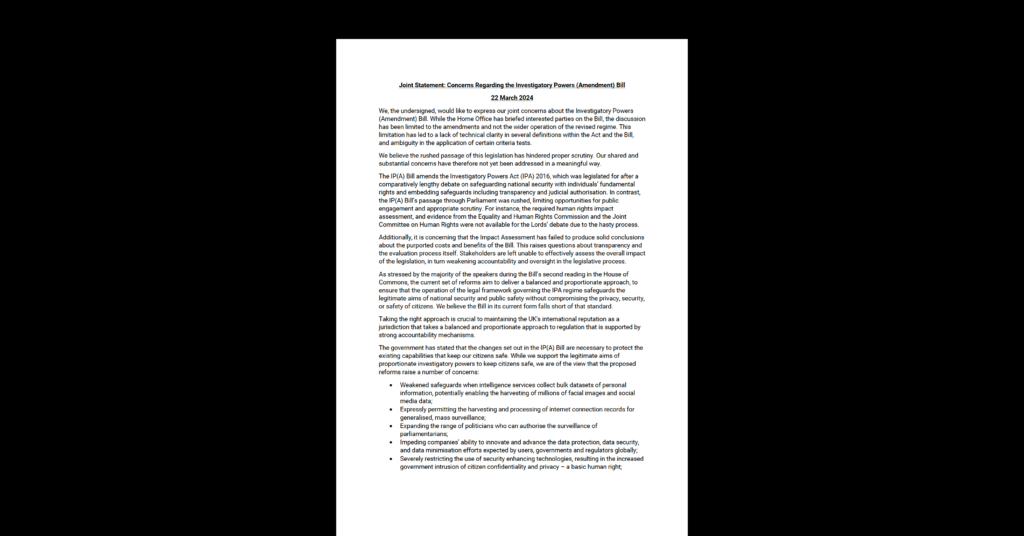EU Industry Committee Makes Strides in Protecting the Open Internet
On Wednesday, the European Parliament Committee on Industry, Research, and Energy (ITRE) approved an informal proposal on the Telecoms Single Market (TSM) regulation, reflecting a consensus reached by negotiators from the European Parliament, Council, and Commission. ITRE’s action moves the regulation another step closer to becoming law, with a plenary vote likely sometime this fall. The proposed regulation goes a long way towards protecting the open Internet. Although far from perfect, the agreed-upon text is a significant accomplishment that at times seemed exceedingly unlikely.
As anyone who has followed the Greek debt crisis, achieving consensus among the EU member states is difficult. And as anyone who followed the net neutrality debates in the United States can attest, crafting rules to safeguard an open Internet is not a process that lends itself to an easy consensus among regulators, stakeholders, and the public. Indeed, the Federal Communications Commission is back in court for the third time in five years to defend its actions to protect an open Internet, and the House of Representatives is threatening to defund that effort regardless of the litigation’s result. With that perspective in mind, the TSM regulation’s successful navigation through a European Parliament, Council, and Commission representing 28 members states is remarkable, particularly considering that the regulation also deals with data roaming.
The European regulation resembles the FCC’s Open Internet rules, which allow reasonable network management, but make clear that paid prioritization is not a reasonable network management practice.
The cornerstone of the TSM’s open Internet protections is the Article 3 requirement that network operators “shall treat all traffic equally, when providing internet access services, without discrimination, restriction or interference, and irrespective of the sender and receiver, the content accessed or distributed, the applications or services used or provided, or the terminal equipment used.” While a network operator may deviate from this requirement to implement reasonable traffic management measures, those measures “shall not be based on commercial considerations.” In this way, the European regulation resembles the FCC’s Open Internet rules, which allow reasonable network management, but make clear that paid prioritization is not a reasonable network management practice.
Also similar to the FCC’s Open Internet Order, the TSM does not clearly define the specialized services exempted from the protections for open Internet access. In 2013, CDT called for greater clarity in the TSM with respect to specialized services. As the name suggests, a specialized service should serve a specific and limited purpose that is distinct from a general-purpose ability to send and receive data across the entire Internet. Thus, services that are either used or marketed as substitutes for Internet access should not fall within the exception for specialized services. CDT repeated its call for clarification of this point as recently as last month. Although the consensus proposal does not require logically separated capacity for specialized services (such that a consumer’s use of a specialized service would not affect the bandwidth available for Internet access), it does clarify that such services “shall not be usable or offered as a replacement for internet access services” and may be offered only when there is sufficient network capacity to offer them without limiting Internet access. Although not perfect, this is an improvement over prior Council drafts and in line with some of CDT’s prior recommendations.
With zero rating, the negotiators seem have opted for a consciously muddled approach. Article 2 of the proposed regulation expressly allows agreements between ISPs and their customers on many “commercial and technical conditions and characteristics of internet access” so long as they do not inhibit end-user choice. Without stating whether or where the TSM expressly deals with zero rating, the Commission has stated that “[r]egulatory authorities will have to monitor [zero rating arrangements] and ensure compliance with the rules.” This is similar to the FCC’s decision to address zero-rating through the Open Internet rules’ “general conduct” standard. However, what does this mean for member states who have already opted to prohibit zero rating? Although the debate over potential benefits and harms of zero rating is active and unresolved, a nation’s prerogative to address the practice should be honored. It is unclear if the TSM does that.
There are other areas where the lack of precise definitions is more acceptable or even preferred. Some advocates have voiced displeasure with the negotiators’ decision not to include a definition of “network neutrality” in the regulation. CDT is not persuaded that defining the concept of net neutrality is necessary or desirable. The United States, Chile, Brazil, and the Netherlands have all put in place regulations to protect network neutrality without a definition that might inadvertently freeze in place a concept that must evolve with Internet-enabled content, applications, and devices, and the way that people use them.
When the tentative agreement on the proposed regulation was reached at the end of June, the European Commission explained why, in its view, the TSM’s open Internet rules were “the strongest in the world.” Regardless of whether that assertion turns out to be correct, advocates for an open Internet should be encouraged. The boast reflects a clear recognition that European users demand an Internet free of gatekeeper control, and the willingness to protect that freedom. Not every member of the Parliament, Council, or Commission will agree that the regulation is the ideal embodiment of those protections. Indeed, most would likely say otherwise: that it is too weak, too strong, too prescriptive, too ambiguous. Charged with accommodating those divergent perspectives, the negotiators accomplished a great deal by bringing the TSM to its current point.



